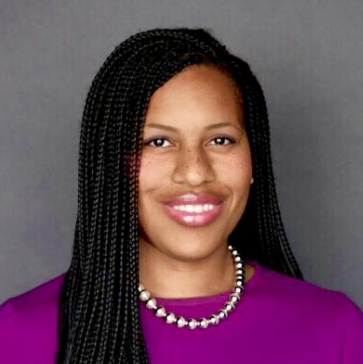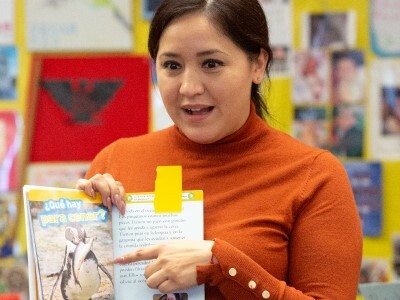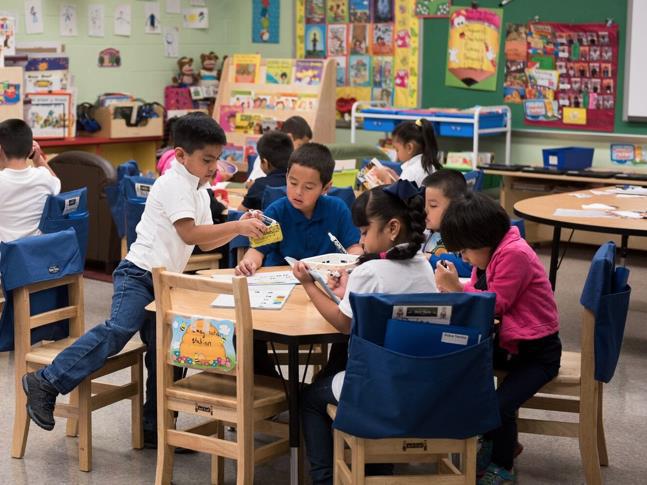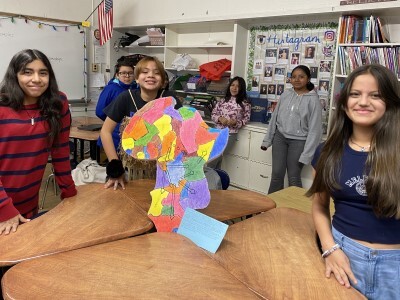4 Strategies that Drive Educator Collaboration: Supporting Educators of Multilingual Learners
Topics
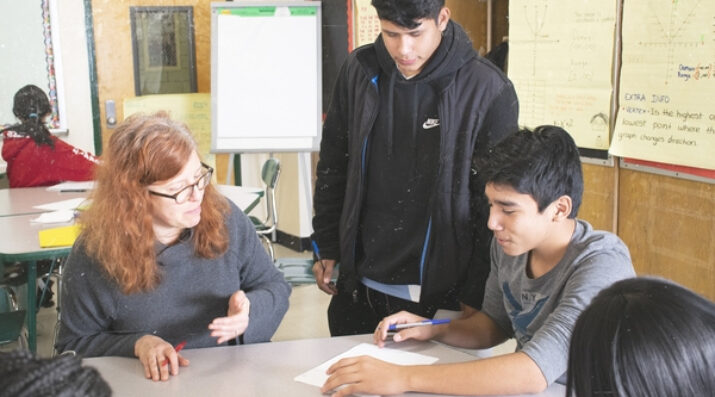
Educators are the lead learners in schools. If they are to enable powerful, authentic, deep learning among their students, they need to live that kind of learning and professional culture themselves. When everyone is part of that experiential through-line, that’s when next generation learning thrives.
The free, open Internationals Network resource bank provides teachers with tools and strategies to effectively serve multilingual learners in all settings: in-class, hybrid, and remote.
Teaching multilingual learners (MLLs) is a challenge. Although they’re the fastest growing demographic in U.S. public schools, most teacher prep programs provide little to no professional training to teacher candidates about how to reach and teach this unique student population. Reflecting on my experiences as a first-year teacher, I was provided no training at all to support my English learners.
But Internationals Network has addressed this problem, for over 35 years, by providing innovative professional learning opportunities to new and veteran educators of multilingual learners. The Network has developed five core principles, based on proven practice and research, that help educators to effectively serve multilingual learners: Heterogeneity + Collaboration, Experiential Learning, Language + Content Integration, Localized Autonomy + Responsibility, and One Learning Model For All.
Internationals Network’s 5 Core Principles
Heterogeneity + Collaboration
Experiential Learning
Language + Content Integration
Localized Autonomy + Responsibility
One Learning Model For All
Kr8 Ventures partnered with the Network to create a free, online resource bank to share resources for supporting multilingual learners. These four key strategies identified in the Internationals Network’s Resources for Educator Collaboration Overview, available in the resource bank, may be helpful to schools and districts:
- Working Groups
- Curriculum Development and Feedback Sessions
- Summer Institutes
- Practitioner-Led Conferences
Working Groups bring together small groups of educators for collaboration, inquiry, and mutual support. Working groups may meet monthly or each semester to identify key strategies and best practices that support multilingual learners to address their unique challenges. Each working group’s structure is set by a scope and sequence, with each working group meeting setting an agenda, agreements, question formulation techniques, and feedback protocols to optimize participant engagement. Working group members may also design and work on a project together.
Curriculum Development and Feedback Sessions provide a formal structure for educators to come together and provide each other feedback on their lessons, activities, and units. Each session has a theme, and participants engage in quick feedback rounds to receive feedback on their artifacts.
The Summer Institute is a two-day conference where Internationals Network educators convene to engage in sessions and professional development experiences focused on best practices to support multilingual learners. The sessions are designed and facilitated by Internationals Network staff. The Summer Institute is not only an opportunity for professional learning but also for networking, as it brings educators together from across the Network of 30 schools and academies.
The Practitioner-Led Conference is another annual convening; this one allows educators from across the Network to lead workshops, highlighting best practices from their classrooms and schools. Each conference has a theme, and workshop sessions reflect the year’s theme. Internationals Network supports facilitators by creating a Workshop on Workshops that helps them prepare for a successful facilitation.
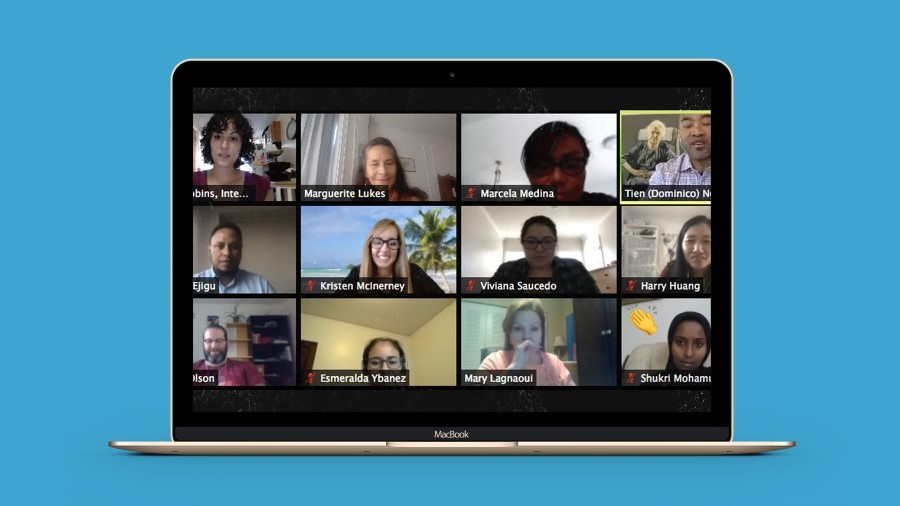
Internationals Network teachers collaborating remotely.
In the Internationals Network resource bank, all educators have access to the Network’s innovative professional learning resources, curriculum guides, student projects, and promising practice videos. The resource bank was initially created in response to the COVID-19 pandemic to support educators delivering lessons remotely and in hybrid environments. Now the resource bank includes materials that teachers can use to support multilingual learners in all settings: in-classroom, hybrid, and remote.
Any one of these strategies can help transform the professional learning community within K-12 school environments, strengthen educator relationships, and ultimately make a difference for multilingual learners. Trying one of these strategies at the school site, or implementing district-wide, could improve the adult learning culture, foster creativity, and drive fresh, innovative practices in and out of the classroom. When I was a middle school teacher, I never benefited from these types of formal opportunities to collaborate closely with my colleagues. This is why I value these resources and am ecstatic to share them widely with educators across the country.
Learn More
Teachers Need More Support Reaching Multilingual Learners. Here’s How. Explore what new and experienced teachers need to know about multilingual learners and how schools and districts can help them become linguistically responsive educators.
How Emergent Bilingual Students Excel through Meaningful Language Practices, Relationship Building, and Extracurricular Activities. Dive into three strategies used at International High School at Langley Park (IHSLP) that can help emergent bilingual students excel in the U.S. education system. Written by NGLC co-director Carlos Beato and a formerly classified EB student at IHSLP. Leer en español.
A Full Spectrum Narrative of a School for English Language Learners. Find out how student-centered evidence helps International High School at Langley Park (IHSLP) better serve English language learners and disrupts the narrative about ELLs.
Photos courtesy of Internationals Network.

